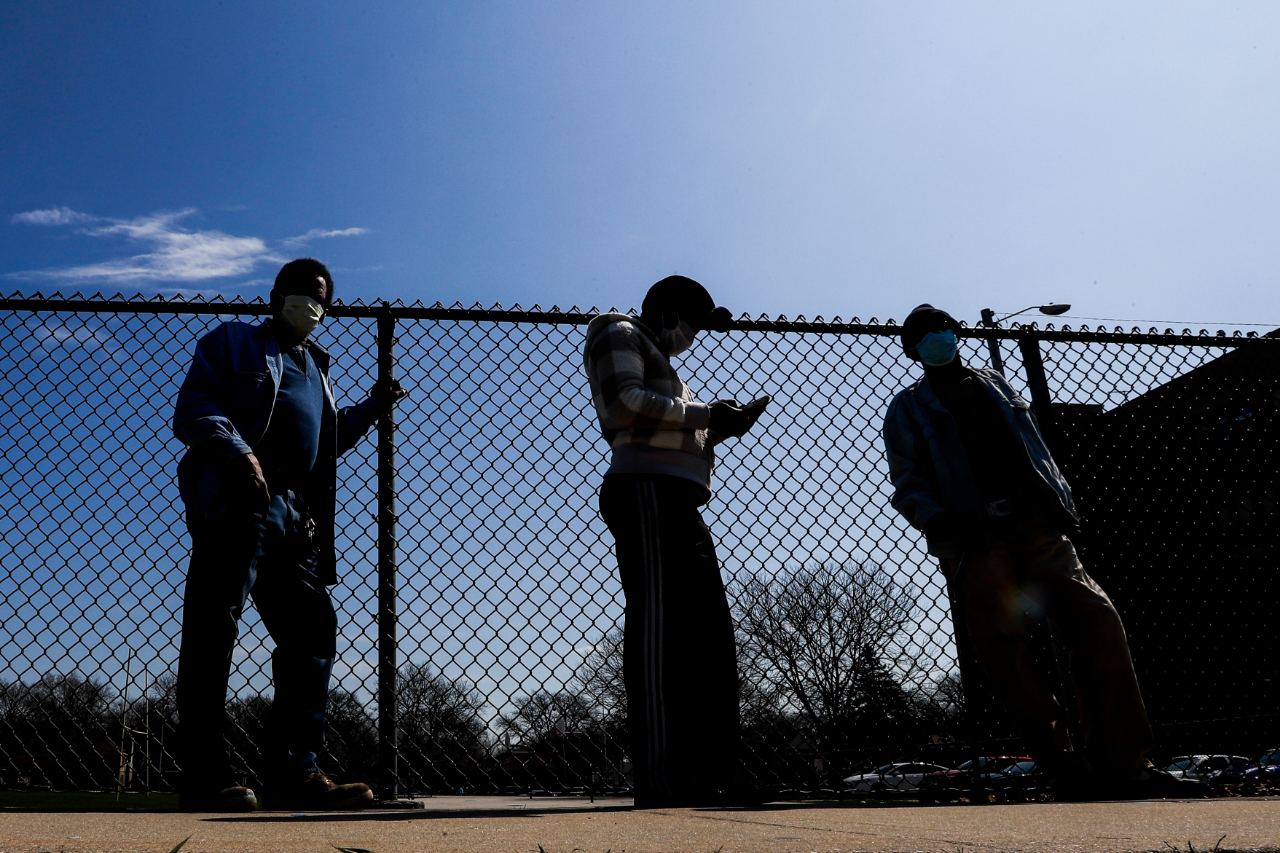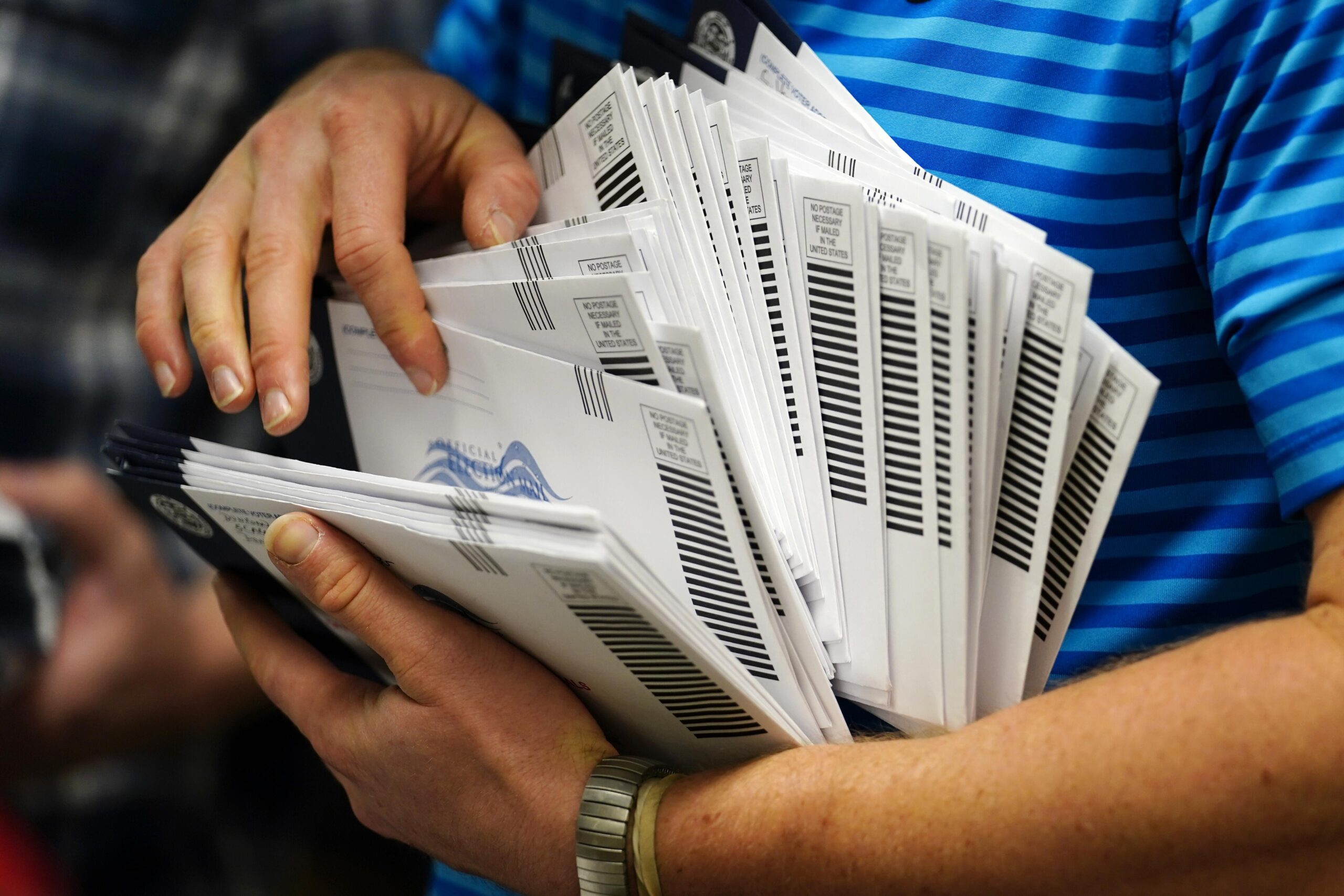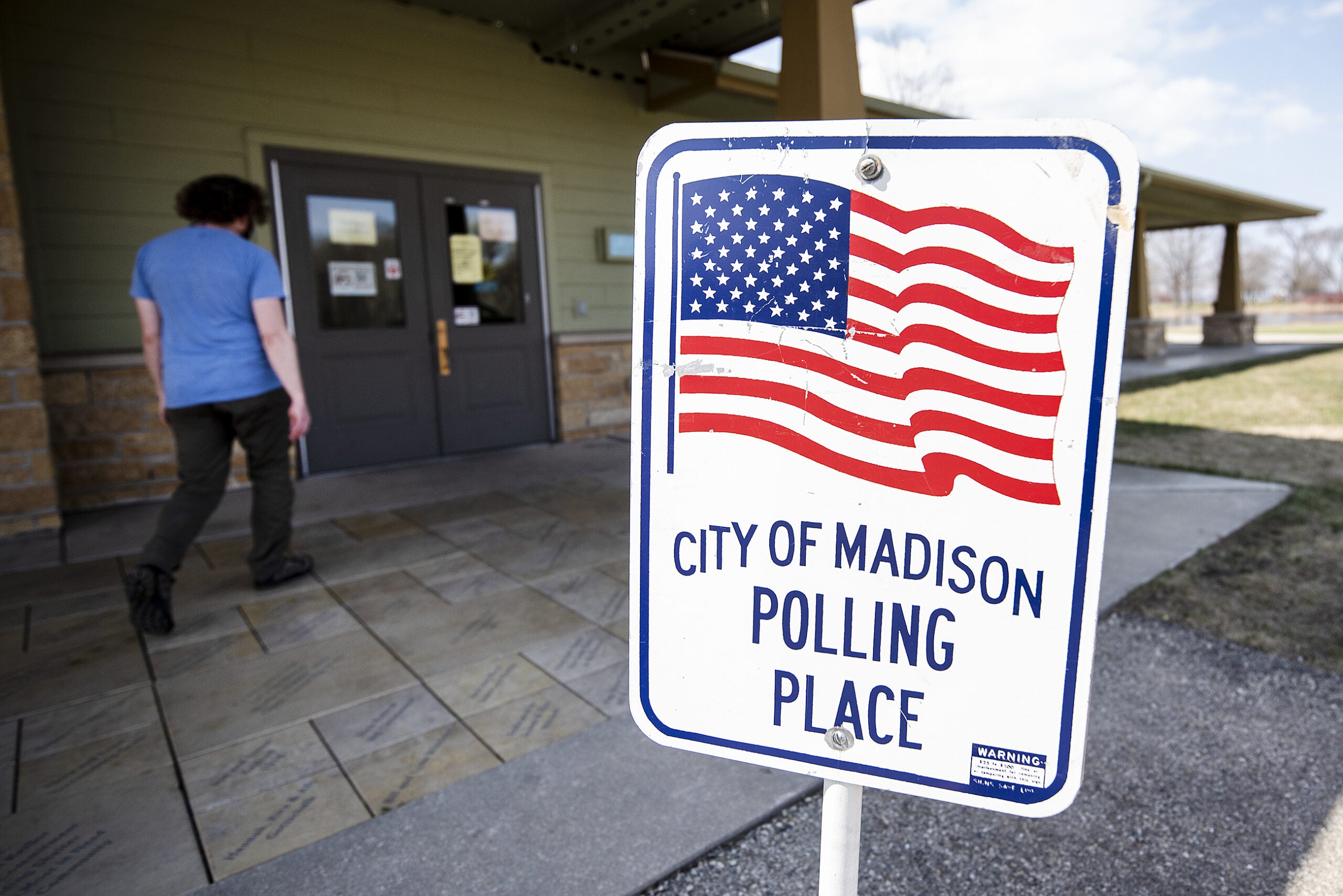A class-action lawsuit has been filed in federal court by a group of Milwaukee-area residents asking for a partial or full re-vote of the presidential primary and spring election held April 7.
This is the first post-election lawsuit filed by voters who say they were disenfranchised by last-minute decisions made by lawmakers during the COVID-19 pandemic. The 14 individuals who filed the lawsuit say they are a representation of voters statewide who were unable to vote.
“Because of the pandemic, people weren’t getting to vote in nursing homes, people, because of legitimate fear of their life, weren’t able to get to the polls,” said Jay Urban, a Milwaukee attorney representing plaintiffs.
News with a little more humanity
WPR’s “Wisconsin Today” newsletter keeps you connected to the state you love without feeling overwhelmed. No paywall. No agenda. No corporate filter.
According to the lawsuit, some plaintiffs are:
- Chrystal and Terron Edwards. The two, who are African American, live in Milwaukee and have three children. Terron is diabetic. Their son has spina bifida and their daughter has asthma. The couple ordered their absentee ballots in mid-March but never received them. They did not vote because of the chronic health conditions.
- Catherine Cooper, of Fox Point. She requested an absentee ballot that never came. Cooper did vote in person in the spring election. She was torn about it because of the health risks of COVID-19; more specifically, her mother, who lives with her, has compromised lungs and other health issues.
- Kileigh Hannah, of Fox Point. She ordered an absentee ballot on or about March 22 and did not receive it. She has multiple sclerosis and is immunosuppressed, so she is at high risk for contracting the new coronavirus and having life-threatening complications, according to the lawsuit. She did not vote.
- Kristopher and Katie Rowe, of Glendale. The two completed and mailed their absentee ballots April 1. Upon checking Wisconsin’s online database, there is no record of
either of them voting since the Feb. 18 election. Their ballots were never received by election officials and they will not count.
The lawsuit, which was filed in the United States District Court for the Western District of Wisconsin against Wisconsin Assembly Speaker Robin Vos, R-Rochester, and Senate Majority Leader Scott Fitzgerald, R-Juneau, could be the first of many in Wisconsin.
On Monday, the national and state Democratic Party’s top leaders said every option was on the table regarding the April 7 election, including a recount.
“It is hard to imagine a world where none of the candidates end up looking for legal recourse,” said Ben Wikler, chair of the Democratic Party of Wisconsin. “Republican decisions not only endangered Wisconsinites but also sparked a legal cloud.”
The lawsuit is asking a court order to count “the votes of all those who were disenfranchised April 7.”
Urban said he would like the court to hold a second election at another date when it is safe for everyone to vote. Knowing that will likely not happen, the lawsuit is asking for a partial re-vote for people who were unable to go to the polls Tuesday and did not receive an absentee ballot.
Vos and Fitzgerald couldn’t immediately be reached for comment.
In addition to Vos and Fitzgerald, the lawsuit names the state, each legislative body, and the Wisconsin Elections Commission, which “had no choice but to implement this illegal scheme, and would be called upon to implement the remedies requested by plaintiffs.”
The day before Election Day, Gov. Tony Evers attempted to push back the election until June with an emergency order, but the Republican-controlled state Legislature immediately made an appeal to the state Supreme Court, which ruled 4-2 to strike the order down in just a matter of hours.
GOP lawmakers opposed delaying the election, saying it would leave vacancies in important local offices across the state.
On April 7, hundreds of people waited in line for hours to vote, particularly in Milwaukee and Green Bay where there were five and two polling places open, respectively.
On Monday, Wikler and Democratic National Committee Chair Tom Perez called on the state GOP and Trump administration to hold a vote-by-mail only special election May 12 for Wisconsin’s 7th Congressional District race.
Perez called what happened Tuesday in Wisconsin “voter suppression on steroids.”
When asked if the state Democratic Party would be willing to file a lawsuit in order to stop an in-person election May 12, Wikler said “all options were on the table.”
Absentee Ballots Counted
Meanwhile, in Milwaukee, the city’s elections commission held an emergency meeting Monday to determine if 390 absentee ballots that had unclear postmarks or were unmarked would be counted. After a nearly two-hour meeting, the commission voted 2-1 to count the ballots.
Commissioners Stephanie Findley and Carmen Cabrera voted to count the ballots. Commissioner Jess Ripp voted against it.
“I feel very book-ended by the Supreme Court decision,” Ripp said. “The court and the Legislature failed. I feel backed into a corner. If they were not post marked, they do not meet the qualifications. It’s tragic, but I absolutely don’t’ see a way around it.”
The Milwaukee election commissioners’ vote will be closely watched across the state as clerks decide how to handle absentee ballots that were received after the election.
Wisconsin Public Radio, © Copyright 2026, Board of Regents of the University of Wisconsin System and Wisconsin Educational Communications Board.







